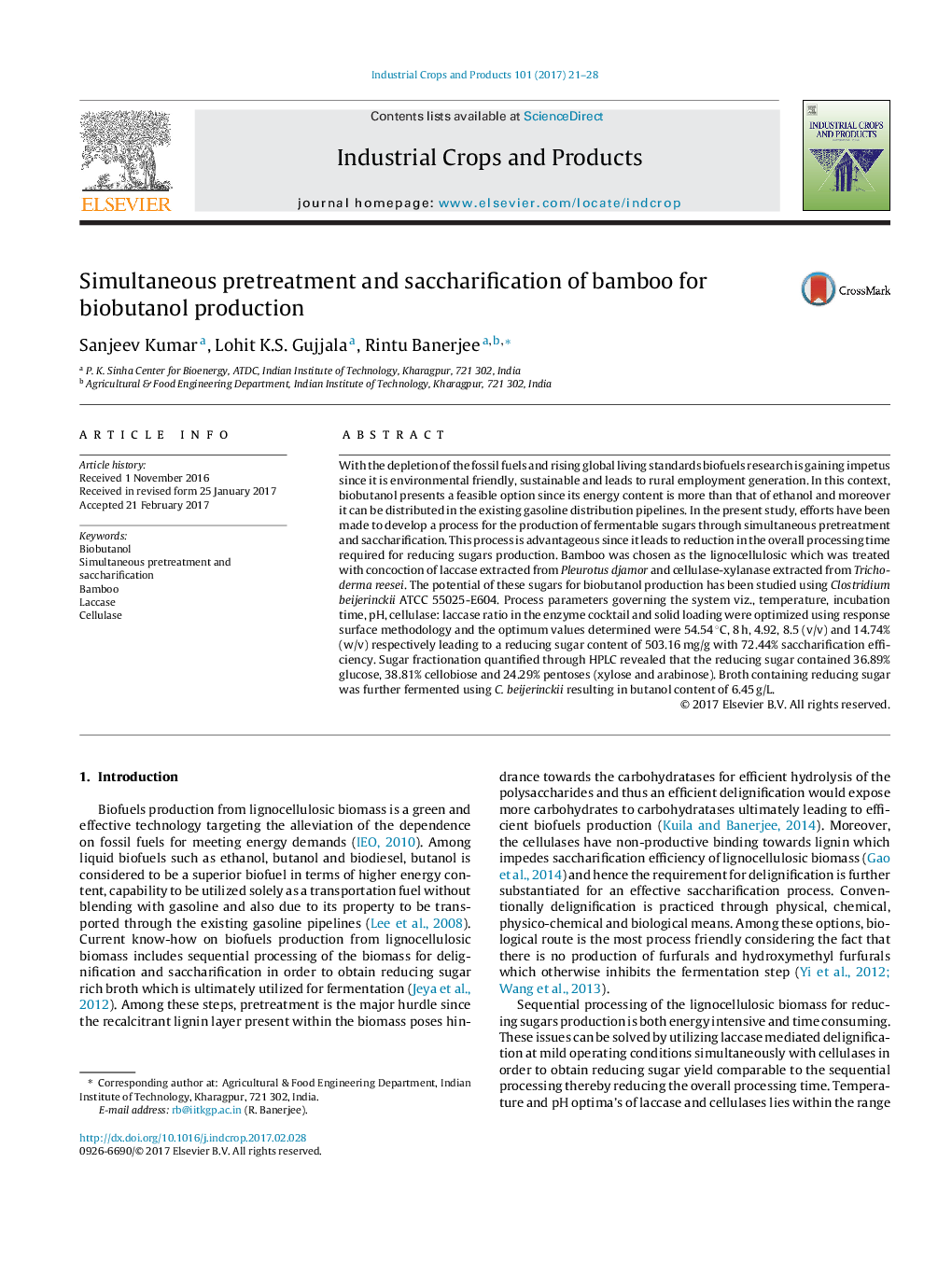| Article ID | Journal | Published Year | Pages | File Type |
|---|---|---|---|---|
| 5762134 | Industrial Crops and Products | 2017 | 8 Pages |
Abstract
With the depletion of the fossil fuels and rising global living standards biofuels research is gaining impetus since it is environmental friendly, sustainable and leads to rural employment generation. In this context, biobutanol presents a feasible option since its energy content is more than that of ethanol and moreover it can be distributed in the existing gasoline distribution pipelines. In the present study, efforts have been made to develop a process for the production of fermentable sugars through simultaneous pretreatment and saccharification. This process is advantageous since it leads to reduction in the overall processing time required for reducing sugars production. Bamboo was chosen as the lignocellulosic which was treated with concoction of laccase extracted from Pleurotus djamor and cellulase-xylanase extracted from Trichoderma reesei. The potential of these sugars for biobutanol production has been studied using Clostridium beijerinckii ATCC 55025-E604. Process parameters governing the system viz., temperature, incubation time, pH, cellulase: laccase ratio in the enzyme cocktail and solid loading were optimized using response surface methodology and the optimum values determined were 54.54 °C, 8 h, 4.92, 8.5 (v/v) and 14.74% (w/v) respectively leading to a reducing sugar content of 503.16 mg/g with 72.44% saccharification efficiency. Sugar fractionation quantified through HPLC revealed that the reducing sugar contained 36.89% glucose, 38.81% cellobiose and 24.29% pentoses (xylose and arabinose). Broth containing reducing sugar was further fermented using C. beijerinckii resulting in butanol content of 6.45 g/L.
Keywords
Related Topics
Life Sciences
Agricultural and Biological Sciences
Agronomy and Crop Science
Authors
Sanjeev Kumar, Lohit K.S. Gujjala, Rintu Banerjee,
